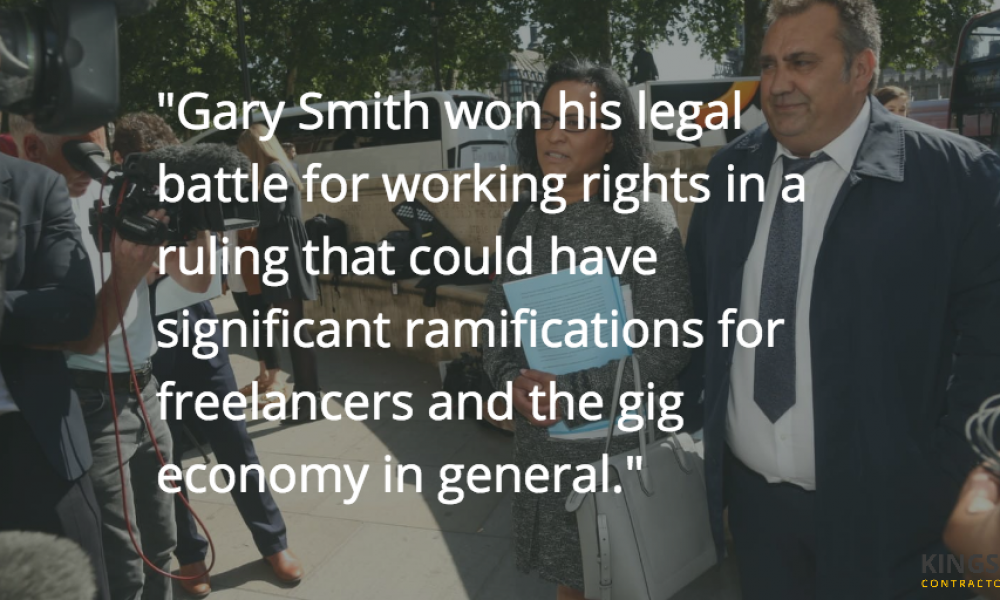Anyone with even a passing interest in the debate around workers’ rights in the gig economy will have taken note of the outcome of the long-gestating Pimlico Plumbers case that reached an end at the Supreme Court yesterday.
For those of you who need a little catching up, a plumber named Gary Smith won his legal battle for working rights in a ruling that could have significant ramifications for freelancers and the gig economy in general.
Since its emergence, the status of workers in the gig economy has been hotly contested. Despite often working long hours for the same company in roles that would once have been considered full-time employment, workers for the likes of Deliveroo, Uber, and Pimlico Plumbers have long been denied the perks of ‘traditional’ employment – sick pay, holiday allowance, a stable salary, and so on.
The companies they work for consider themselves little more than platforms or conduits, middlemen putting a worker and a client in touch. Mr. Smith argued that, having worked solely for Pimlico Plumbers for the last six years, he deserved the same rights as a traditional worker. An employment tribunal was “entitled to conclude” that Mr. Smith was a worker, the Supreme Court ruled. As such, traditional employment rights are now his.
Charlie Mullins, chief executive of Pimlico Plumbers, was far from happy with the outcome: “This was a poor decision that will potentially leave thousands of companies, employing millions of contractors, wondering if one day soon they will get a nasty surprise from a former contractor demanding more money, despite having been paid in full years ago. It can only lead to a tsunami of claims.”
Other observers were slightly more cautious about the ramifications of the ruling, with some noting that the ongoing debate at the governmental level around employment status, and the possibility of legislation being brought forward, could mean that Parliament may overrule the decision within the next few months or years.
Alan Lewis, of the law firm Irwin Mitchell, argued that the decision might not necessarily be a big win for gig economy workers, with future decisions likely to be made on a case-by-case basis. Pimlico Plumbers, he noted, does “not operate a gig model and the implications for Uber, City Sprint, Deliveroo etc may be limited, although the publicity around this case may encourage other ‘self-employed’ contractors to challenge their legal status.”
While the ruling undoubtedly marks a decisive shift in favor of gig workers seeking employment rights, it seems unlikely that it will stop other cases involving the likes of Uber and Deliveroo in their tracks. Gig economy firms tend to have different ways, different contracts, and different sets of demands for the people who rely on them for work, meaning that no two cases (and as such no two rulings) are likely to be the same.
That said, the pressure is now on for the government to crack down on so-called “sham self-employment”. As it currently stands, the onus is firmly on the individual to prove that they are traditionally employed and therefore entitled to workers’ rights. Many employment equality advocates, including TUC General Secretary Frances O’Grady, say it is time for that to change.
Ms. O’Grady has called for the end of the “Wild West in the gig economy” and for the “burden of proof” to be reversed so workers benefit from rights “unless the employer can show they are genuinely self-employed.”
Thanks to Mr. Smith’s day (or rather years) in court, we’re now one step closer to that becoming a reality.
